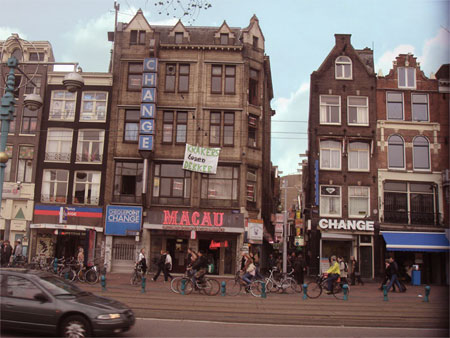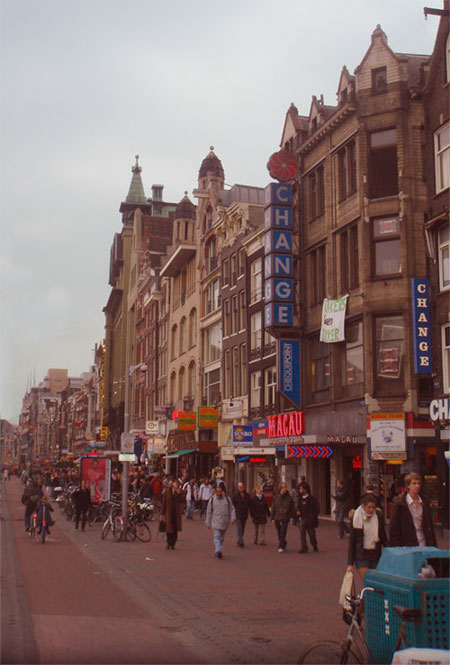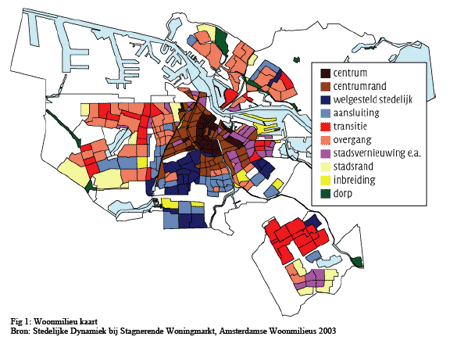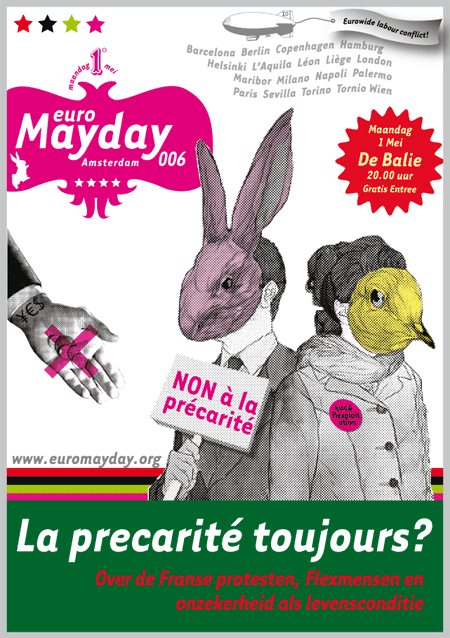 -ENGLISH VERSION BELOW-
-ENGLISH VERSION BELOW-
La precarité toujours? Over de Franse protesten, Flexmensen en onzekerheid als levensconditie. ma 1 mei / 20.00 uur
Massale demonstraties, spoorlijnen geblokkeerd, universiteiten bezet: de Franse jeugd heeft met haar energieke protest het vraagstuk van de ‘precairheid’ in de massamedia gelanceerd. Slechts een paar maanden terug waren het de jongeren in de Banlieues die met niet minder confronterende actiemethoden hun kaarten op tafel legden. In Nederland is de term precairheid nog nauwelijks ingeburgerd. Precairheid, of “precarité�? in het Frans, verwijst naar onzekere en flexibele werk- en levensomstandigheden die onze maatschappij in steeds sterkere mate kenmerken. Sociale bewegingen uit binnen- en buitenland hebben het thema inmiddels tot haar actiepraktijk gemaakt. In zo’n 20 Europese steden zullen op 1 mei EuroMayday parades worden gehouden tegen de bestaansonzekerheid van de nieuwe economie. Zij reppen over de opkomst van de Flexmens, de Brain- en Chainworkers als nieuwe sociale figuren. In Nederland is flexibiliteit al jaren een feit: een contract is altijd tijdelijk, zelden vast en nooit meer “for life�? – geen vakbond die zich daar nog tegen verzet. Werk en inkomen zijn onzeker geworden, maar tegelijk heeft iedereen zijn vaste lasten, die allerminst flexibel zijn. Met de nieuwe zorgwet en een huurverhoging aan de horizon dreigt precairheid – zo lijkt het – ook in Nederland de norm te worden. Is de onrust in Frankrijk daarom een model voor Nederland en Europa, of gaat het toch vooral om een lokale aangelegenheid? Is precairheid in Nederland een issue, en zo ja, wat zijn dan de consequenties voor hoe we denken over werk, leven en politiek? Spelen de vakbonden überhaupt nog een rol op dit terrein? En bieden de nieuwe geflexibiliseerde werkverhoudingen niet ook kansen voor een meer autonome levensstijl? Op 1 mei, de traditionele Dag van de Arbeid, organiseert de Balie een discussie waar deze vragen aan bod komen met gesproken columns, film, debat en verslag van de Euromayday. Sprekers: Anne Querrien (Franse sociologe en urbaniste, redacteur van Multitudes) Rutger Groot Wassink (Historicus) Eddy Stam (Organiser bij FNV bondgenoten) Film: Organising the Unorganizable (32 min, VS 2004) Toegang | gratis
Aanvang | 20.00 uur
Voertaal | engels
Georganiseerd ism Flexmens.org en Greenpepper Magazine
-ENGLISH VERSION-
La precarité toujours?
On the French protests, new social subjects and insecurity as living
condition.
Monday 1 May / 8pm
Massive demonstrations, blocked railway lines, occupied universities: the French youth succeeded with it’s energetic protests against the CPE to launch the issue of precarity into the mass media. Only months ago, youth in the /banlieues/ made their situation public, with action methods that were no less confronting. In the Netherland the term precarity is unknown. Precarity, or “precarité�? in French, refers to unstable and insecure work and living conditions that have become more and more dominant in our “flexible�? society.
Meanwhile, social movements from around the continent have made the topic subject of their daily political practice. On the 1st of May, Mayday, twenty European cities will be the site of Euromayday parades and protests of temp/net/flex workers and migrants against precarity, for flexicurity and citizenship. They allude to the rise of new social subjects, Brain- and Chainworkers, and the /precariat/ as a new, fragmented proletariat. In the Netherlands, flexibility has been the reality for years: contract are generally temporary, rarely permanent and never for life – and no trade union that is still opposed to that. Work and income have become more insecure, while everyone still has fixed basic expenses, that aren’t flexible at all. With the new privatised care system and a rise in rents coming up, it looks like precarity threatens to become the norm for more and more people in the Netherlands as well.
Is the unrest in France representative for the situation in the Netherlands and the rest of Europe, or is it a local reality? Is precarity an issue, and if so, what are the consequences for our thinking about work, life and politics? Do the trade unions still have any role to play? And can’t flexibilised labour relations offer the possibility of a more autonomous lifestyle?
On the 1st of May, Labour Day, de Balie will host a discussion on these questions and more. With spoken columns, film, debate and reports of the Euromayday parades.
Speakers:
Anne Querrien (Franse sociologe en urbaniste, redacteur van Multitudes)
Rutger Groot Wassink (Historian)
Eddy Stam (Organiser with FNV bondgenoten)
Film:
Organising the Unorganizable (32 min, VS 2004)
Entrance | free
Start | 20.00 hours
Language | English – Dutch
The program can be followed via live-stream at: http://www.debalie.nl/live Organised with Flexmens.org en Greenpepper Magazine

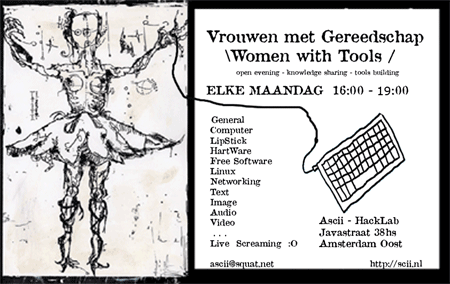




 -ENGLISH VERSION BELOW-
-ENGLISH VERSION BELOW-